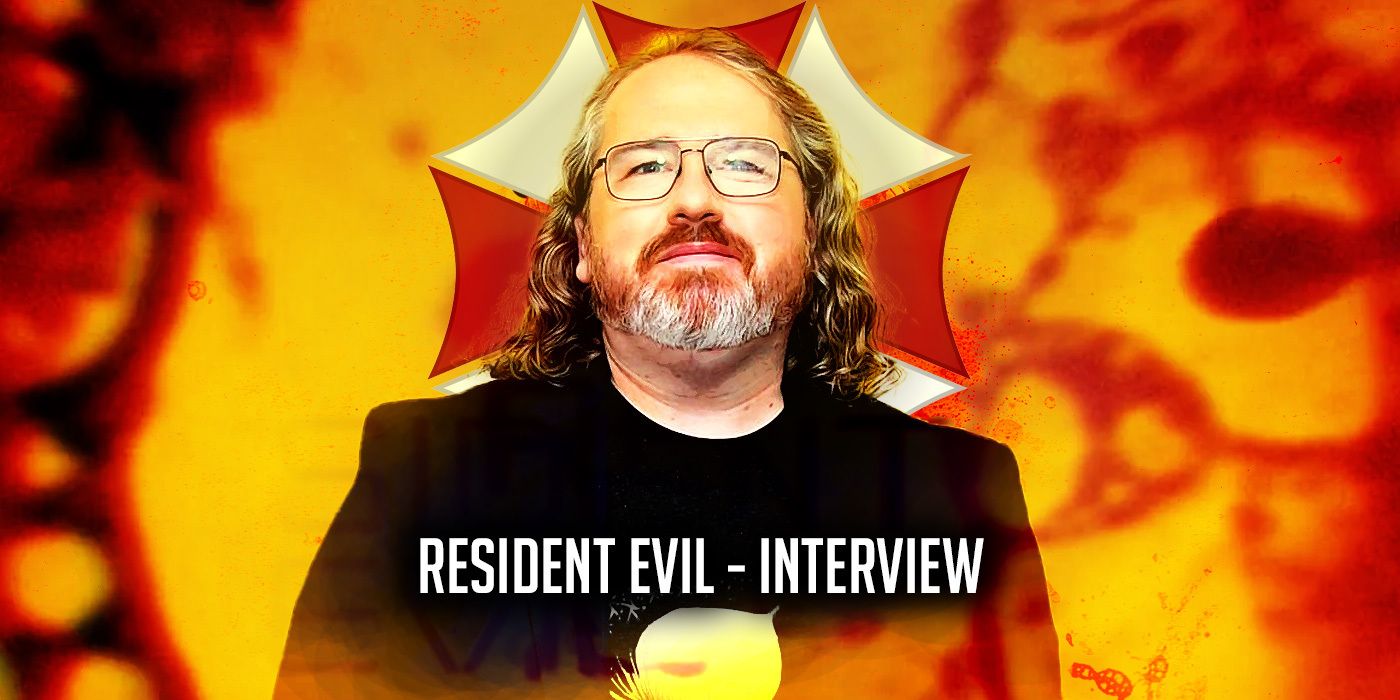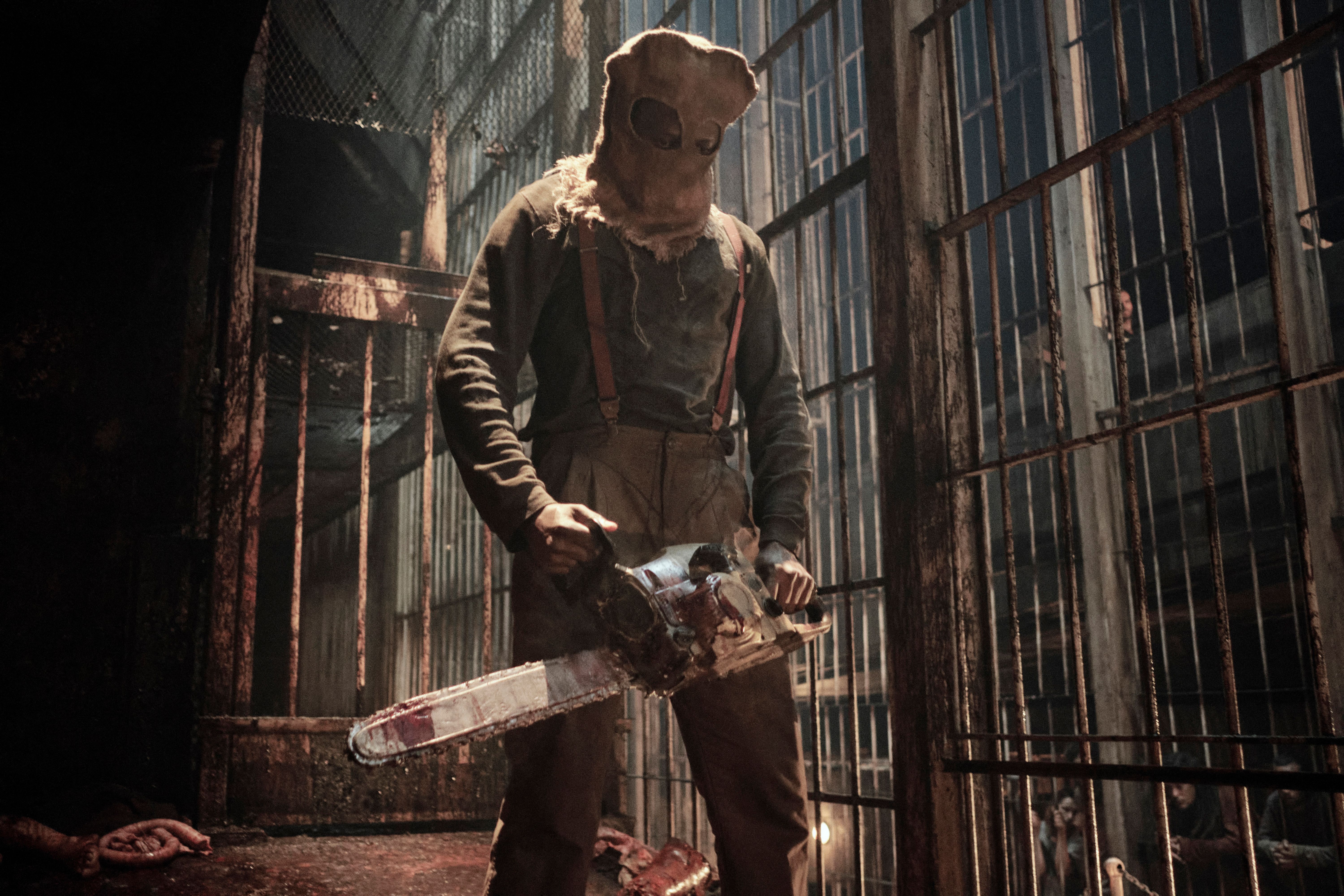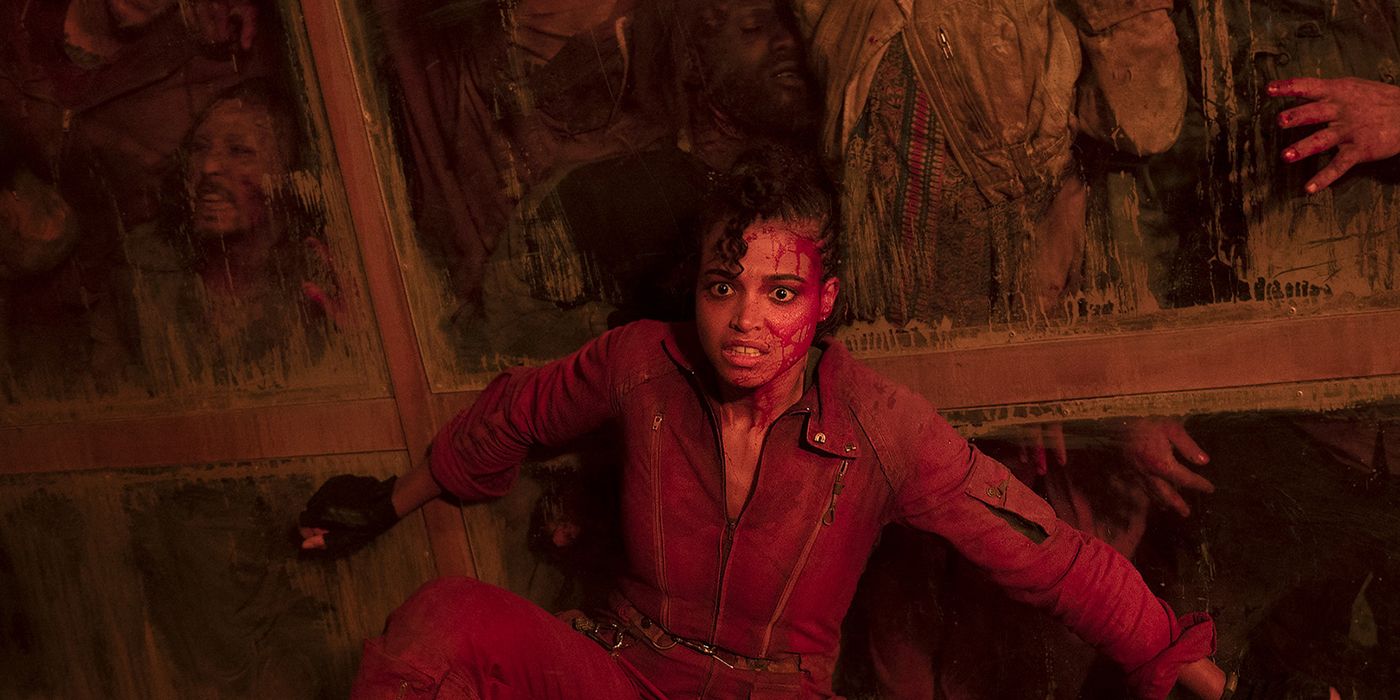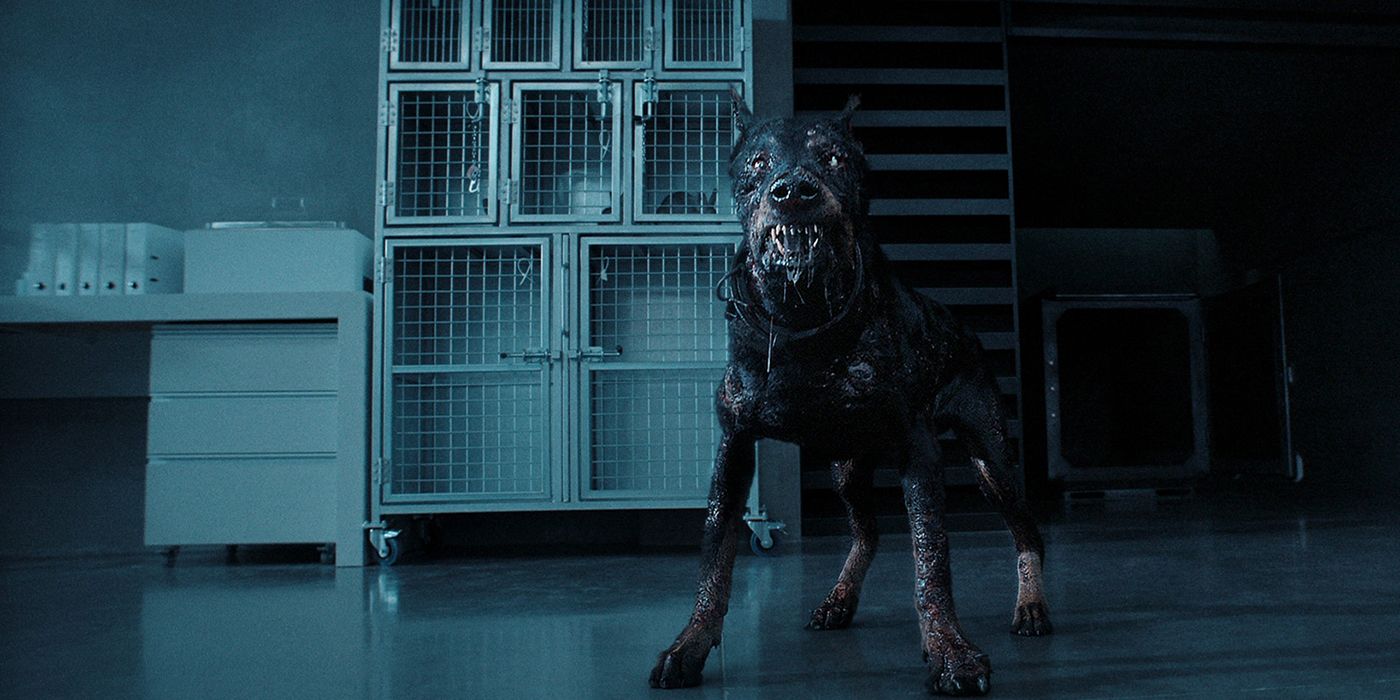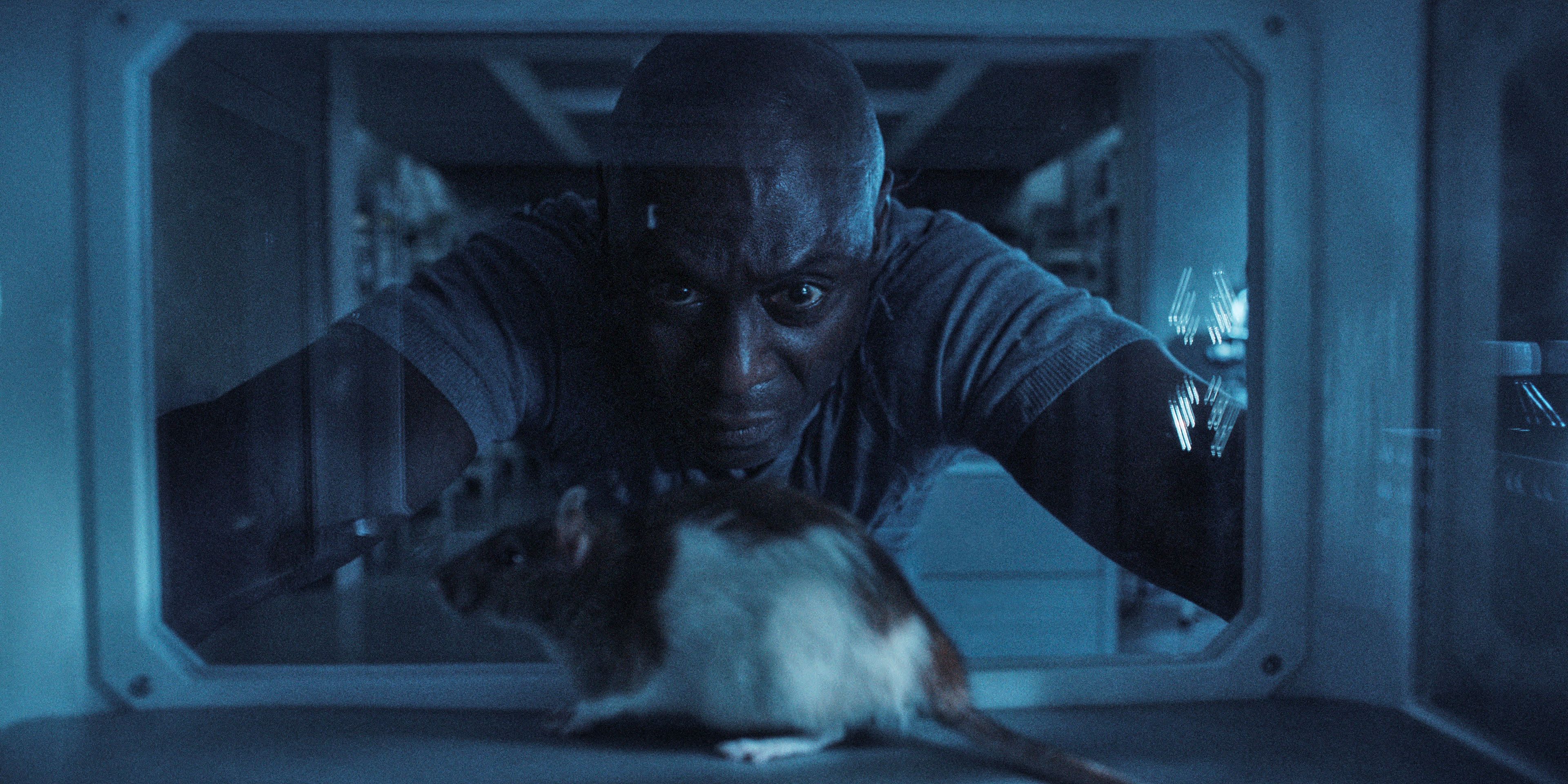From creator Andrew Dabb, the Netflix series Resident Evil (which hails from the popular media franchise created by Capcom) serves as the third live-action adaptation set in this universe. The show, which takes its backstory and lore from the video games but branches off into its own original continuity, is set over a perspective of dual timelines, one taking place in our present and one set in a semi-distant future.
In 2022, Dr. Albert Wesker (Lance Reddick) and his two daughters, Jade (Tamara Smart) and Billie (Siena Agudong) have recently relocated to a new planned community known as New Raccoon City, a vision established by the mysterious Umbrella Corporation — to which Wesker serves as an executive and researcher publicly tasked with the creation of a new product known as "Joy." In secret, however, Wesker is seeking to engineer a response to the epidemic of something called the "T-virus." Meanwhile, Jade and Billie, suspicious of their father's actual work, start digging into Umbrella's secrets — much to the chagrin of Wesker's boss and company head Evelyn Marcus (Paola Núñez).
In the future timeline of 2036, Jade (Ella Balinska) is on the run from Umbrella, who is seeking her for some nefarious purpose — but she also has to survive dangerous groups of "zeroes," those who have been infected by the T-virus, in order to make it home to her family. However, Jade's situation becomes even more complicated when it's revealed that not only Umbrella, but her sister Billie (Adeline Rudolph) has quite the bone to pick with her too.
Ahead of the show's July 14 premiere, Collider had the opportunity to briefly speak with Dabb about taking on this series as his first post-Supernatural project and where this Resident Evil show fits into the overall franchise timeline. Over the course of the interview, which you can watch above or read below, Dabb also discusses how the series puts its own twist on zombies, what this incarnation of Umbrella is up to, which franchise characters he'd love to introduce in future seasons, and more.
Collider: I would love to start with how this all began for you, because you're coming off of a show like Supernatural, which had such an impressive run. But then thinking about next steps, what made you want to take on something like this series as your next project?
ANDREW DABB: It was two things. Number one is I'm just a huge fan of Resident Evil. You know what I mean? And the games and the movies. The games were defining in a way, for me, just for the horror genre period. In terms of like, they really form what I think horror is and what really works, and you could see that in Supernatural at different points. And then the movies, I think, are a bit underrated, because they were one of the first movies that really took multiple genres and kind of shuffled them together, whether it's sci-fi and horror and action and everything else. So, they're really defining in two different ways. When the opportunity came about, I was like, "Oh, I would love to do that. The lore is so interesting."
It was like, okay, if you're going to do it, how can you make it feel different than what's out there? Luckily, Resident Evil itself has a lot of elements that you can do that with, with the monsters and some of the backstory and the corporate maneuverings and the crazy conspiracies. Then they kind of allowed us — they being Netflix and Capcom — to build on that as well. So the games are the backstory, but we now are branching off into our own little world.
I guess that brings me to my next question. What can you reveal or explain about the show's timeline for people who are wondering about where this fits into the larger Resident Evil universe?
DABB: Sure. So basically everything game-wise [that] has been released up to now, which is Village, is our backstory, and from that point, the games are going to go this direction, we're going to go this direction. Believe me, if the games do something... If we're lucky enough to go more seasons and the games do something awesome in like Resident Evil 9, we will steal that. We will happily steal that, but we are not informing the games. Capcom has their own beautiful plan for where they plan to take things. That's great. And then the movies are kind of, I would say, like an alternate reality. You know what I mean? Certainly tonally, staging-wise, we're certainly inspired by the movies. I love the movies, but the Alice character and things like that don't really exist in this world.
It's like the Resident Evil multiverse.
DABB: It's like the Resident Evil... exactly. The good news is we're all very familiar with multiverses now. So, it fits right in.
What's the biggest challenge that people might not be aware of when it comes to tackling a show like this, that is based in existing IP?
DABB: I think the biggest thing is a lot of times [when] you're dealing with IP, you're dealing with what I would call dead IP. So, it's a novel that exists or a movie series that came out 20 years ago. Resident Evil, when we were developing, it had a movie, it had an animated series, it had another game coming out, and us. That's about as alive as IP gets. So you want to do something that, again, feels at peace with everything else, but is distinctively its own thing. It's not like you watch the movie and you watch the show, you're like, "Oh that's the same. Why would I watch that again?" Or you watch the show and you play the games, you're like, "Why am I doing this?" My hope is that everything folds into each other and you watch the show and you'll get it to the end of it and be like, "You know what? I really want to go play those games." Or, "I really want to go watch," and Netflix will come up and be like, "Watch the Resident Evil movie." You're like, "I would like to watch that." You watch it and it feels of a world. Hopefully everything kind of dovetails together in a way.
In watching this, and you get this sense from the trailers too, Umbrella is over everything, which is fitting, considering the name. What can you share about this incarnation of Umbrella in the show and what they've been up to?
DABB: Umbrella, for most of its history, was essentially a weapons manufacturer for the US government. That didn't go so great for various reasons, which you play the games, you know. Umbrella now, under Evelyn Marcus — her father kind of founded the company, it was stolen from him. She's come in and picked up the pieces and rebuilt Umbrella in a different image, one that is a bit more... It's like Pfizer or something along those lines. Moderna But with that old school, maybe ethically questionable DNA. So that's the fun of it. You look at it like a company, Atari or whatever, that kind of goes down and then it gets built back up — which, by the way, is a very old reference, because Atari no longer exists, but at one point, it went through that cycle. You don't have to trust me on that.
I feel like you can't talk about Resident Evil without talking about the monsters, and there are some gnarly ones in this show. I'm not sure what you can say, but what can you tease so far for fans in terms of what we'll get to see in Season 1?
DABB: When it comes to the monsters, both the zombies and what we call like super zombies — zombies that maybe aren't your traditional guys chasing brains — and then, the hybrid creatures as well, What we wanted to do is, these are things that a lot of them have existed in the games in kind of one form or another. We wanted to put our own twist on them and also make them feel like something that exists on streaming today. The visual effects have gotten so much better — Not just since the movies, but in the last two years, when it comes to television specifically and streaming specifically. It was really fun to bring those things to life and hopefully, knock on wood, we'll get to continue to do that.
The show is definitely rooted in the lore of the games, the world of the games, but one of the themes that really struck me watching is family, the intimate sense of family connection, but it's coming from a surprising source in Albert Wesker. What can you say about the relationship that he and his daughters have this season?
DABB: Yeah, and that's on purpose, you know what I mean? We wanted fans of the games to see Albert as a suburban dad and be like, "How did that happen?" And then we kind of explore that over the course of the games. I think his relationship with his daughters, it's complicated. Like they're his daughters and he loves them, but at the same time, he's a very distant father. Let's put it that way. I think a lot of parents kind of view their kids as — again, this is maybe me projecting too much of my own life — a means to an end, and I think Albert looks at his daughters in that way a little bit too. Yes, he had them because he wanted kids, but he also had them for a reason.
With the show being linked to the franchise in its own way, are there any specific franchise characters that you're hoping to be able to introduce at some point beyond who we've met so far?
DABB: All of them. That's my hope. If the show runs long enough. Look there are... Certainly, by the end of the show, we're kind of teasing characters, including Ada Wong. If we're lucky enough to have a Season 2, I think we can expect multiple characters from the games to appear in ways that are kind of inevitable, and hopefully a little bit surprising.
Provided you do get a Season 2, are we going to see more of the dual timeline, kind of the back and forth between the past and the present as those mysteries begin to unfold?
Yes, definitely.
Resident Evil is currently available to stream on Netflix.

